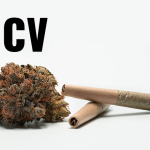The use of cannabis for medicinal purposes has been a topic of increasing interest and debate in recent years.
One of the products that has gained popularity is THC gummies, which are infused with tetrahydrocannabinol (THC), the psychoactive compound found in cannabis. These gummies are being explored as a natural health remedy for a variety of conditions, from chronic pain to anxiety and sleep disorders.
In this article, we will delve into the world of THC gummies, examining their potential benefits, risks, and the science behind their effectiveness.
Understanding THC and CBD
Before diving into THC gummies, it’s essential to understand the two primary compounds in cannabis: THC and CBD. THC, or tetrahydrocannabinol, is the psychoactive compound responsible for the “high” associated with marijuana use. On the other hand, CBD, or cannabidiol, is a non-psychoactive compound that has gained recognition for its potential therapeutic properties.
THC Gummies: A Natural Health Remedy
Pain Management
One of the most common reasons people turn to THC gummies is for pain relief. Research suggests that THC can effectively alleviate various types of pain, including chronic pain conditions like arthritis and fibromyalgia.
When consumed, THC interacts with the endocannabinoid system in the body, which plays a crucial role in regulating pain perception. THC gummies offer a convenient and discrete way for individuals to manage their pain without resorting to pharmaceutical medications.
Anxiety and Stress Reduction
Another significant application of THC gummies is for anxiety and stress relief. Many people report feeling more relaxed and less anxious after consuming these gummies.
THC interacts with the brain’s receptors, influencing the release of neurotransmitters like serotonin and dopamine, which are known to affect mood. However, it’s important to note that while THC can provide anxiety relief for some, it may exacerbate anxiety in others, so dosing and individual tolerance play a crucial role.
Sleep Aid
Sleep disorders, such as insomnia, affect millions of people worldwide. Some individuals have found relief from their sleep troubles by using THC gummies.
THC has sedative effects that can help people fall asleep faster and stay asleep longer. It can also improve the overall quality of sleep by reducing the number of times a person wakes during the night. However, using THC gummies as a sleep aid should be done cautiously and under the guidance of a healthcare professional to avoid dependence.
Appetite Stimulation
THC is known for its ability to stimulate appetite, often referred to as having the “munchies.” This property can be particularly beneficial for individuals undergoing treatments like chemotherapy, which can cause severe appetite loss and weight loss. THC gummies can help increase food intake and improve overall nutritional well-being in such cases.
Creativity and Focus
Some individuals claim that THC gummies enhance their creativity and focus. While this effect may not be universally experienced, there are anecdotal reports of artists, writers, and musicians turning to THC for inspiration and concentration. However, the impact of THC on cognitive function can vary widely among individuals.
Science Behind THC Gummies
The therapeutic effects of THC gummies are rooted in the body’s endocannabinoid system (ECS). The ECS is a complex cell-signaling system that plays a vital role in maintaining homeostasis, or balance, within the body. It consists of endocannabinoids (naturally occurring compounds in the body), receptors, and enzymes.
THC interacts with the ECS when consumed by binding to CB1 and CB2 receptors. CB1 receptors are primarily found in the brain and central nervous system, while CB2 receptors are more abundant in peripheral tissues, including the immune system. Activating these receptors can lead to various physiological responses, such as pain relief, mood alteration, and appetite stimulation.
However, it’s important to note that the precise mechanisms through which THC produces its effects are still a subject of ongoing research. Moreover, the individual response to THC can vary significantly, depending on factors such as dosage, tolerance, and genetics.
Potential Risks and Considerations
While THC gummies offer potential health benefits, they are not without risks and considerations:
- Psychoactive Effects: THC is a psychoactive compound, and its consumption can lead to altered perception, impaired coordination, and cognitive impairment. Individuals using THC gummies should be cautious about these effects, particularly if they need to operate machinery or perform tasks that require focus.
- Legal Status: THC gummies’ legality varies from jurisdiction to jurisdiction. In some regions, they are legal for medicinal and/or recreational use, while in others, they remain strictly prohibited. Awareness of and compliance with local laws and regulations is essential.
- Dosage Control: Proper dosage is critical when using THC gummies. Consuming too much THC can lead to adverse effects like paranoia, anxiety, and hallucinations. It is advisable to start with a low dose and gradually increase it until the desired effects are achieved.
- Dependency Potential: Regular use of THC gummies can lead to tolerance, dependence, and withdrawal symptoms when not consumed. Therefore, individuals using THC gummies for medicinal purposes should work closely with healthcare professionals to develop a treatment plan and monitor usage.
Conclusion
THC gummies have emerged as a natural health remedy with potential benefits for pain management, anxiety relief, sleep aid, appetite stimulation, and creativity enhancement.
Their effects are primarily mediated through the endocannabinoid system in the body. However, it is essential to approach their use cautiously, considering individual tolerance, legal regulations, and potential risks.
As research on cannabis and its compounds continues to advance, likely, our understanding of the best weed gummies and their therapeutic applications will become more nuanced. For those considering THC gummies as a health remedy, consulting with a healthcare provider and adhering to responsible use practices is crucial to ensure safe and effective outcomes.















